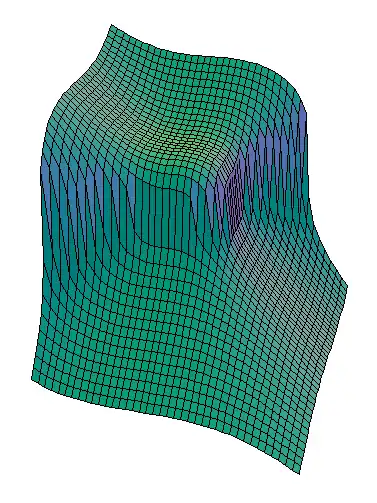Fermat curve
In mathematics, the Fermat curve is the algebraic curve in the complex projective plane defined in homogeneous coordinates (X:Y:Z) by the Fermat equation

Therefore, in terms of the affine plane its equation is
An integer solution to the Fermat equation would correspond to a nonzero rational number solution to the affine equation, and vice versa. But by Fermat's Last Theorem it is now known that (for n > 2) there are no nontrivial integer solutions to the Fermat equation; therefore, the Fermat curve has no nontrivial rational points.
The Fermat curve is non-singular and has genus
This means genus 0 for the case n = 2 (a conic) and genus 1 only for n = 3 (an elliptic curve). The Jacobian variety of the Fermat curve has been studied in depth. It is isogenous to a product of simple abelian varieties with complex multiplication.
The Fermat curve also has gonality
Fermat varieties
Fermat-style equations in more variables define as projective varieties the Fermat varieties.
Related studies
- Baker, Matthew; Gonzalez-Jimenez, Enrique; Gonzalez, Josep; Poonen, Bjorn (2005), "Finiteness results for modular curves of genus at least 2", American Journal of Mathematics, 127 (6): 1325–1387, JSTOR 40068023
- Gross, Benedict H.; Rohrlich, David E. (1978), "Some Results on the Mordell-Weil Group of the Jacobian of the Fermat Curve" (PDF), Inventiones Mathematicae, 44 (3): 201–224, doi:10.1007/BF01403161, archived from the original (PDF) on 2011-07-13
- Klassen, Matthew J.; Debarre, Olivier (1994), "Points of Low Degree on Smooth Plane Curves", Journal für die reine und angewandte Mathematik, 1994 (446), doi:10.1515/crll.1994.446.81</ref>
- Tzermias, Pavlos (2004), "Low-Degree Points on Hurwitz-Klein Curves", Transactions of the American Mathematical Society, 356 (3): 939–951, JSTOR 1195002